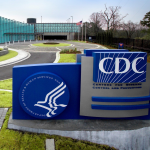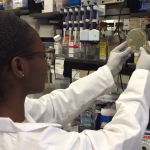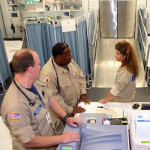The CDC's estimate of 83 million infections is really quite stunning, yet few if any people are talking about this. That's a real shame. It's vital that we learn not to repeat the same mistakes, including the social and economic ones, not just the epidemiological ones.
public health policy
Millions of families around the world are separated due to COVID travel restrictions. These people are left to suffer in isolation, consoled only by the platitude that the benefits of strict lockdowns outweigh the cost of emotional pain and psychological torture.
The data suggest that Washington is doing better than Idaho at reducing COVID sicknesses and deaths. However, the data also suggest that massive restrictions aren't necessary to get COVID under control. It's time for Washington to start opening up.
A substantial proportion of frontline healthcare workers are refusing to accept the COVID vaccine. This poses an unacceptable risk to public health. They should take the jab or lose their job.
Our friendly neighbors to the north are fibbing about the coronavirus in their country, justifying a border closure with the United States that no longer makes sense.
As infuriating as the World Health Organization can be, the reality is that the U.S. cannot "go it alone" on issues like global disease surveillance. Staying in the WHO is aligned with America's long-term security, economic, and geopolitical interests.
Infectious disease models can also describe riots. The spread of coronavirus and violent protests share many features in common, shedding at least some light on the coming summer of discontent.
American culture, specifically our disdainful attitude toward expertise and leadership, is not conducive to making improvements to public health policy. Don't expect many changes in response to the coronavirus pandemic.
The negative impact of (1) "at-all-costs" breastfeeding campaigns, (2) the political zeal of "lactivism" and (3) societal pressures have done a proven disservice to women and families. So much so that formal health policy had to be changed.
The American Academy of Pediatrics wants to guide clinicians on “Countering Vaccine Hesitancy” among parents. This policy statement, published in the journal Pediatrics, rightly champions vaccination as "one of the greatest public health achievements of the last century." There is just one problem; pediatricians actually don't need more guidelines and protocols.
A large fraction of studies on humans at major academic centers listed on clinicaltrials.gov are never reported. Over one-third never come to light, and many others take far too long. This leads to a distortion of science-based public health.









